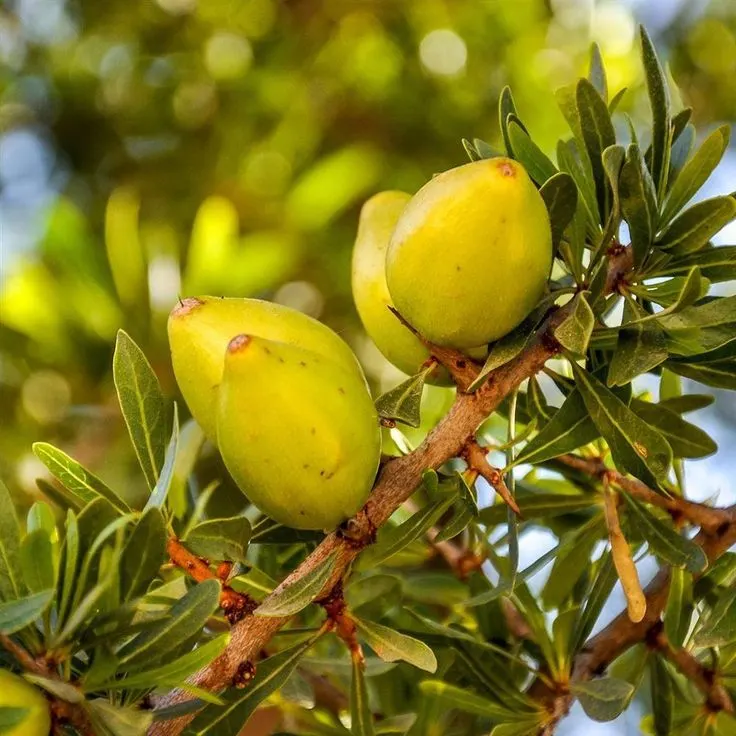More and more people around the world are using pure Moroccan argan oil. As a result, exporting this precious oil is now a big opportunity for businesses. But it also requires care, planning, and a clear understanding of rules, documents, and best practices.
What Makes Argan Oil So Special?
Argan oil comes from the nuts of the Argania spinosa tree, which grows only in Morocco. The oil is known for its power to improve skin, hair, and even heart health.
Key Features
- High in vitamin E
- Full of healthy fats (omega 6 and 9)
- Rich in antioxidants
- Cold-pressed, pure, and often certified organic
- Used in cosmetics, skincare, and food
🔬 See its full composition at NCBI
Why Exporting Argan Oil Is a Smart Idea
Selling high-quality argan oil abroad has many benefits:
- Reach big markets like the US, Europe, and Asia
- Earn more from a product that has strong value
- Build lasting partnerships with brands and retailers
- Help support Moroccan cooperatives and the local economy
When done right, argan oil export doesn’t just grow your business—it helps protect nature and support people.
Rules and Documents You Need to Export Argan Oil
To export argan oil, you must follow the law in Morocco and in the countries you sell to. Here are the most important papers and checks to prepare:
Key Documents
- Certificate of Origin (from Morocco’s Chamber of Commerce)
- Health Certificate (from ONSSA or a lab)
- Organic Certification (ECOCERT, USDA Organic, COSMOS)
- COA (Certificate of Analysis) to prove oil quality
- MSDS (Safety Data Sheet) for shipping and labeling
- Export license from Moroccan authorities
Simple Tips to Export Argan Oil the Right Way
To succeed in international trade, it’s important to use clear and honest methods.
1. Work With Real Cooperatives
When you buy from women-led cooperatives, you help local people and get better, traceable oil.
A great place to start is argan-oil.ma
2. Always Use Cold-Pressed Oil
This keeps all the good nutrients and follows organic rules.
3. Package It Right
Use glass bottles or food-safe containers. Add labels in more than one language with clear product details.
4. Know Import Rules in Each Country
For example, the EU needs INCI labeling and traceability. The US needs USDA organic status if you want to sell it as organic.
5. Be Ready With All Documents
Your buyer will want lab tests, certifications, and shipping safety info. If you have it ready, you’ll avoid delays.
How Argan Oil Stands Out from Other Oils
Argan oil is not like coconut or palm oil. It’s more rare, more eco-friendly, and has a powerful story behind it.
- Small batches from trusted sources
- Helps women through fair trade
- Feels light and absorbs quickly
- Perfect for beauty and wellness brands
- Has higher resale value
This makes argan oil a premium product—not just an ingredient.
Argan Oil Pricing for Export
The price of argan oil depends on:
- The certifications it holds
- Whether it’s bulk or bottled
- The size of your order
- Shipping and taxes in your buyer’s country
Typical Prices
- Bulk oil (per liter): $25–$50
- Branded bottles: $70–$120
- Custom labels or private branding: on request
🛒 Find export pricing options at argan-oil.ma/wholesale
Quality and Originality
When you export real Moroccan argan oil, you offer something unique. True quality means:
- Cold-pressed from hand-picked nuts
- Lab-tested for safety and purity
- Packaged in dark glass bottles
- Certified organic and traceable
- Free of additives or synthetic chemicals
Your customers will notice the difference.
What Buyers Are Saying
“We resell Moroccan argan oil in Europe and have had great feedback from our customers.” – Elena, Germany
“Their documents and certifications helped us get our product into the U.S. market smoothly.” – Mark, USA
“We bought food-grade argan oil for our health store chain. The oil and service were excellent.” – Sana, Canada
My View as a Blogger
As someone who writes about clean beauty and ethical products, I believe argan oil export is about more than business. It’s about doing things the right way. I’ve seen how women in Morocco work with care to make each drop of oil. Their work deserves to be shared with the world—with respect and fairness.
When a brand follows the rules, keeps quality high, and gives back to the people behind the product, it builds more than profit. It builds trust.
That’s why I always recommend working with verified exporters like argan-oil.ma who blend tradition and quality.
Conclusion
Exporting Moroccan argan oil is a smart move—but only if you follow the right steps. With the correct documents, clear sourcing, and strong quality control, you can grow your business and help share one of Morocco’s best natural gifts with the world.
👉 Ready to export with confidence? Visit https://argan-oil.ma for support, bulk pricing, and private label services.



